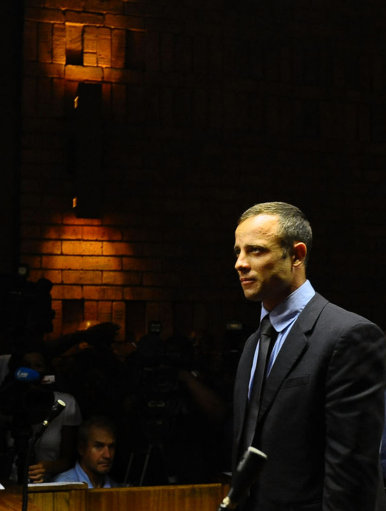Guns and blades: Oscar Pistorius and the South African tragedy

The tragic killing of Reeva Steenkamp by her boyfriend Oscar Pistorius, the world-renowned South African Paralympic and Olympic blade running star, has inevitably generated a huge amount of media analysis and speculation.
Besides being a sporting celebrity, Pistorius was known to be a devoutly religious man, whose faith was illustrated by a tattoo on his back, quoting the Apostle Paul's words from 1 Corinthians 9:26-27, "I do not run aimlessly… but I discipline my body and keep it under control, lest after preaching to others I myself should be disqualified." Pistorius also reportedly would pray before every race, often with a competitor. So not surprisingly, South Africans, and the wider world, are stunned.
Rumours and allegations abound at the present time, but what does seem clear is that Pistorius lived with acute concerns and fears about his safety. For South Africans, this is not untypical. Sadly, the new South Africa is a nation beset by fear. Having lived some years back only a few miles from where Pistorius has his Pretoria home, I am aware of just how edgy, even paranoid, many South Africans are about violent crime. It is a constant topic of conversation with many. Friends of mine have recounted how they have been held up at gunpoint, a relative of theirs hijacked, and a friend shot. South Africa leads the world in the level of gun-related crime.
Living with such fear on a daily basis inevitably prompts people to take every measure within their means to safeguard their lives and property. Homes have become fortresses for all who can afford it. Properties have sophisticated alarm systems, electronic gates, and many are surrounded by high walls with razor-wire along the top, and security guards are posted at the entrances of secure residential complexes. Motorists know to leave an adequate distance between them and the car in front at intersections, to allow space to pull out and escape if they are approached by suspected car-jackers. Even churches have prominent signs, warning of "Armed Response" in the event of their security alarm being triggered. Security is of paramount concern for most South Africans. Oscar Pistorius will by no means be unique in sleeping with a pistol under his pillow.
The possibility of an armed intruder breaking in does certainly prey on the minds of countless South Africans, but the truth of what happened on the night when Reeva Steenkamp died could be difficult to establish. Because Oscar Pistorius is a celebrity, the forthcoming murder trial has already been compared to the trial of O J Simpson some years ago, and many in the media as well as the general public have already drawn their own conclusions. In the full glare of the world's spotlight, with a celebrity and national hero in the dock, the discerning of truth and the exercising of justice becomes much more complicated.
The temptation for the likes of us is to become insatiably curious rubber-neckers, feasting on all the details and turning this tragic episode into a kind of real-life 'Whodunnit' crime drama or soap opera in our minds. For some, it is an opportunity to promote a campaign from which they can gain capital, whether it be the demonstrations denouncing violence against women, or the politicians who can highlight the social, economic or racial deficiencies of South Africa's society. But using such a human tragedy to promote a cause, however noble it may be, risks downplaying the indescribable grief, pain and shock felt by the Steenkamp family and indeed, the whole South African nation.
As we await the forthcoming trial, we need to pray that truth can be established and justice can be done despite the frenzied world interest and media hype. Likewise we need to pray for the relatives of both families caught up in this tragedy, that they may find the peace of God that passes understanding, whatever the ultimate outcome.
Tony Ward is a Bible teacher and evangelist who was ordained in Zimbabwe. He ministers mainly in Cardiff and Bristol.











